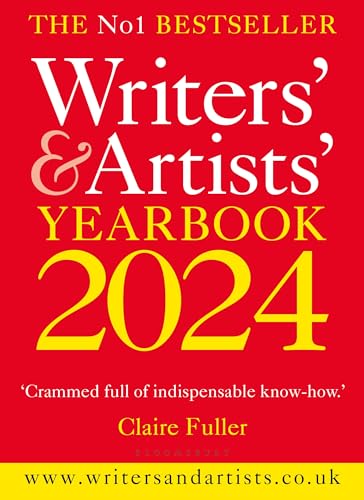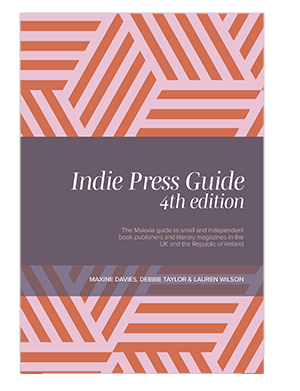I feel I should say one thing straight away. Just because you’re writing does not mean you have to be aiming for publication. If you want to just write, then just write! You shouldn’t feel under any pressure to take it further if you don’t want to. But, if you do feel the urge to send your creation into the wide world, you’ll need to understand how publishing works. It’s a complex topic, and I’ll cover it in more detail in future blog posts, but to begin with let’s take a brief look at the publishing options available.
Which publishing route is the one for you?
Not every writer has the same goal. Some want to see their books become bestsellers, some feel they have an important story to tell, while others are just excited about the experience of being published. All are equally valid.
Try to work out what you think you might want from publishing your book. Hopefully then you’ll be able to work out which way you want to go.

Traditional publishing
In traditional publishing, a publishing house takes care of all the steps needed to publish your book, such as editing, design, distribution and sales. This was historically how it was done (hence ‘traditional’!), and it’s probably what most people have in their minds when they think of books being published. In the UK, traditional publishers include the really big ones such as Penguin Random House, Hachette, HarperCollins and Pan Macmillan. But they have many imprints (smaller, separate companies that come under their umbrella), and there are independent publishing houses too.
Most big publishers won’t accept submissions directly from authors, so you’ll need to approach literary agents who will approach publishers on your behalf. Smaller independent presses often will take submissions direct from authors (see below).
When a publisher accepts your book for publication, they may pay you an advance (money up front – although this is much less common than it used to be). After that, you’ll receive royalties on every sale of your book.
The pros and cons
Apart from the kudos and credibility (which writer wouldn’t want to be published alongside the greats!), you benefit from a team of professionals working hard to make your book amazing! Along with that traditional publishers have established distribution chains to get your book into shops, and a marketing department to publicise it, although in recent times even the big publishers have cut their marketing budgets and you’ll likely have to play a part in your own publicity. But perhaps best of all – it costs you absolutely nothing! In traditional publishing, the publisher takes the financial risk and the author does not pay.
It’s an incredibly competitive market, though, so you really have to be at the absolute top of your writing game to have your book taken on. And it’s unlikely to be a route to riches. Advances are usually small for a debut author, and royalties aren’t high. (Typically, royalties on paperbacks are around 5%–7.5% of sales, and often that’s a percentage of net receipts, i.e. what the publisher receives, which is considerably less than the retail price.) On top of that, authors tend to retain very little creative control.
This could be the publishing route for you if…
… your dream is to be a bestselling author, as long as you’re realistic. You’ll need to work hard to perfect your craft, and you’ll need the patience and thick skin to handle the rejections before you get that elusive deal! The publishing process is slow too. From acceptance, it could take two years for your book to finally see the shelves. And there’s still no guarantee you’ll hit the big time. Success does come to some, though, and it could be you!
It could also be the route for you if you have zero desire to self-publish!
A good way to start finding traditional publishers and agents is through the Writers’ and Artists’ Yearbook. It’s published annually, and you should find it in your local library.
Traditional publishing through independent presses
Smaller, independent presses also offer traditional publishing deals, in that you give them the right to publish your book, and they pay you royalties on sales. Remember, in a traditional publishing deal, you pay nothing to the publisher.
Just like the big publishing houses, indie presses carry out all the publishing tasks. The difference is that, instead of focusing on profit, indie presses are usually run by people passionate about publishing, and often with a particular vision. They may champion new writers, or writers from underrepresented groups or particular areas. Or they may publish books they are enthusiastic about which they believe would probably be overlooked by mainstream publishing.
The pros and cons
Many will take submissions from authors, so you can query them directly without the need for an agent. Royalties are often higher too, and you’re likely to have more input in the creative process. And indie presses are often more prepared to take a risk on a debut author or an unusual book. Additionally, many authors feel indie presses are more genuine and love the experience of working with a small, enthusiastic team.
Indie presses are often run by a handful of people, sometimes even just one or two, so they probably won’t have a dedicated marketing department. You’ll need to work with them and pull your weight in terms of publicising your book. Some of the larger ones are well established and have reliable distribution routes to market, while others may run on a print-on-demand basis, selling through online channels only.
Realistically, sales are unlikely to be high. But many authors very much enjoy being published by indie presses, often citing reasons such as the non-profit model and sense of community. And books published by indie presses can do very well. Take a look at Leonard and Hungry Paul by Ronan Hession (published by Bluemoose Books) and Ducks, Newburyport by Lucy Ellman (Galley Beggar Press).
This could be the publishing route for you if…
… you’re excited about the prospect of working with a small team, or the community and non-profit aspects appeal to you. Or your book is a little quirky and you don’t think major publishers would be interested. Or you’d just enjoy the feeling of being out of the mainstream.
There are many independent publishers out there. The Indie Press Guide, published by Mslexia, is an excellent resource to find them. Or you could look at the publishers shortlisted for indie book awards, such as the Republic of Consciousness Prize.
Self-publishing
Self-publishing is when you arrange the printing and distribution of your book yourself. This used to have a bit of a stigma attached to it (it was once known as vanity publishing), because it was believed that self-published books were ones that had been rejected by traditional publishers (and were therefore not very good!) and whose authors had plenty of money (and vanity!) to put them out there anyway.
But with the rise of the internet, along with print-on-demand services and online selling, self-publishing is now a perfectly viable option and self-published authors can have considerable success. If you take the time to learn all about the process, and seek help when you need it, you can produce a professional product and achieve sales.
The pros and cons
You can just do it! There’s nothing (and no one) stopping you. And you are in complete creative control all the time. Although you’re responsible for all the tasks, you don’t have to do them yourself. You can hire editors, cover designers, marketing experts… whoever you need. And once your book is selling you keep 100% of the profits!
But there’s a lot to learn, and it can be quite overwhelming. While you may be able to do some of it yourself, if you want to produce a quality product you’ll almost certainly need professional help at some point. You could even consider a full self-publishing service if you want to delegate the lot. There are companies and freelancers offering everything you could need, and many are excellent, but as with any occupation, there are those who not quite what they seem! Be sure to do your due diligence with whoever you hire to make sure they’re competent, experienced and trustworthy.
This could be the publishing route for you if…
… you’d rather retain control of your work and keep the profits. But you’ll need to be prepared for a steep learning curve and be happy to put the work in. And even if you self-publish on a shoestring, you should expect to have to pay for something along the line, so you’ll need a budget.
Some authors are delighted just to have their book out there and don’t worry too much about sales. But if you’re prepared to treat it like a business and work hard, you can do very well, like these authors.
Hybrid Publishing… or is it a Vanity Press?
Hybrid publishing is a relatively new model that combines traditional and self-publishing. The idea is that you share the production costs with the publisher and receive a higher rate of royalties in return.
Hybrid publishers should still be selective in accepting authors, and should genuinely believe that their books will have a reasonable chance of selling well. The Independent Book Publisher’s Association (IBPA) sets out criteria which define the standards for a reputable hybrid publisher.
However, sadly there are companies out there calling themselves hybrid publishers (or just publishers) who are, in fact, vanity presses in disguise. They pretend to be selective, but in reality they’re not interested in the quality of your book. Instead they’ll accept almost anyone who will pay. And sometimes that can run into thousands. It’s very important to be wary of any ‘publisher’ who asks for money from you.
Hybrid publishing could be for you if…
… you want the support of an experience publishing house, but you’re prepared to share the financial risk in order to potentially earn higher royalties. But do extensive research. Err on the sceptical side until you’re confident that the publishing house you’re dealing with is genuine and ethical.
A true publishing deal is one in which you, the author, pay nothing. If you’re entering into an arrangement in which you are paying anything, be sure you know what exactly you’re getting for your money. Look at other books they’ve published. Talk to other authors they’ve worked with.
Writers Beware is an excellent resource to read more about vanity and hybrid publishing, and their blog lists some of the most complained about presses.
So that’s it in a nutshell!
There is much more to say about publishing, and I’ll try and cover more issues in future posts. If there’s anything specific you’d like to know about, drop me a comment below!



This is superb advice. After observing the hoops my niece went through trying to agented, I decided to self-publish my novella on Amazon. At first, I found getting all the ‘technical’ bits and pieces a bit daunting, but once I got my head around what they wanted, it all soon clicked into place. I have had some success, I first published it in October 2021 and it is still selling today, not in the ‘bestseller’ ranks yet, far from it, but it has gone way beyond the ‘family and friends’ circles! I’d recommend this route to any budding authors.
PS. My niece eventually got her book published directly with an independent publisher.
Thanks for sharing your experiences, Graham. It’s great to hear that you and your niece have both had success in your own chosen paths!